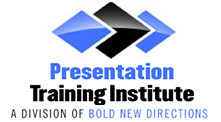1. Listen to the Entire Question
Do not start formulating your answers until you have listened to the entire question. If needed, you may even ask the questioner to repeat the question so you fully understand. You may also want to clarify your understanding by repeating the question back to the questioner before answering.Â
2. Compliment the Questioner
This can be an extremely effective strategy when used in moderation. You should never say, “Great question!†after every question. Overuse of the compliment makes it less effective. Then, when someone asks you a question you have never considered before, you can genuinely say, “That’s a great question. I’ve never thought about it that way before. Does anyone have any ideas on that?†This strategy is highly effective when it comes from a place of true sincerity. The audience loves to be complimented and they appreciate the compliment rather than judging the presenter.Â
3. I’ll Get Back to You
If you are asked a question that you don’t know the answer to, you can work around it by telling the questioner, “I am writing this down and I will get back to you.†Then, be honest and tell them exactly when you plan to get back with them. Perhaps you will find them after the presentation, call or email them after lunch, or maybe even the next day. This is a great way to show true customer service. You are willing to go the extra mile to help the audience member gain the right information. Talk about impressing an audience!
4. Ask the Audience
Another great way to help yourself with a tough question while also engaging the audience is to involve the audience. When you are asked a question you don’t know the answer to, simply refer back to the audience by saying, “Does anyone here have any experience with that?†People love sharing their knowledge with others so this is a great way to help yourself while also involving your audience.Â
5. Parallel Answer
If you don’t know the exact answer to a question, you can offer what knowledge you do have to demonstrate your credibility. For example, let’s say you are an expert on Microsoft Excel and someone asks you a question about Google Workspace. Instead of saying, “I don’t know,†you could respond with, “I am very familiar with Excel and I know that is possible with Excel. Let me find out if it works the same with Google Workspace.†While you admitted to not knowing the question, you demonstrated your competency and you committed to finding the answer.Â
6. Set Guidelines for Questions
One of the best ways to handle difficult questions is to prevent them in the first place. As the speaker, you get to set the rules for the presentation. So, lay some groundwork upfront and start your presentation by saying, “I welcome general questions at the conclusion of the presentation but if you have questions about a specific subject outside of our agenda, please see me after the presentation.†Once the rules have been set, you can even refer back to them if needed. For example, if someone still asks a question that is specifically not part of the presentation, you can politely remind them to see you after the presentation for a private discussion.
